
Johnny Otis was a first generation Greek-American singer, musician, composer, bandleader, record producer, and talent scout. He was a seminal influence on American R&B and rock and roll. He discovered numerous artists early in their careers who went on to become highly successful in their own right, including Little Esther Phillips, Etta James, Alan O'Day, Big Mama Thornton, Johnny Ace, Jackie Wilson, Little Willie John, Hank Ballard, and The Robins, among many others. Otis has been called the "Godfather of Rhythm and Blues".

Lonnie Brooks was an American blues singer and guitarist. The musicologist Robert Palmer, writing in Rolling Stone, stated, "His music is witty, soulful and ferociously energetic, brimming with novel harmonic turnarounds, committed vocals and simply astonishing guitar work." Jon Pareles, a music critic for the New York Times, wrote, "He sings in a rowdy baritone, sliding and rasping in songs that celebrate lust, fulfilled and unfulfilled; his guitar solos are pointed and unhurried, with a tone that slices cleanly across the beat. Wearing a cowboy hat, he looks like the embodiment of a good-time bluesman." Howard Reich, a music critic for the Chicago Tribune, wrote, "...the music that thundered from Brooks' instrument and voice...shook the room. His sound was so huge and delivery so ferocious as to make everything alongside him seem a little smaller."

And the Horse They Rode In On is an album by the Minneapolis band Soul Asylum, released in 1990. The vinyl, cassette, and CD versions of the album have different, but related, cover art. The band supported the album with a North American tour. The first single was "Spinnin'".
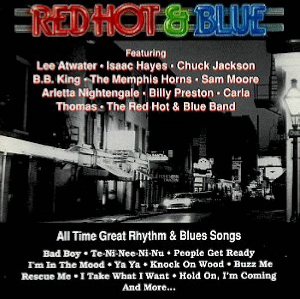
Red Hot & Blue is an album released in 1990 by Lee Atwater, a Republican political consultant in the United States. Atwater wanted to bring to a wider audience the sounds of 1960s Stax Records and southern R&B and blues. "Bad Boy" was released as a single. The title track was nominated for a Grammy Award.

"Call It Stormy Monday (But Tuesday Is Just as Bad)" (commonly referred to as "Stormy Monday") is a song written and recorded by American blues electric guitar pioneer T-Bone Walker. It is a slow twelve-bar blues performed in the West Coast blues-style that features Walker's smooth, plaintive vocal and distinctive guitar work. As well as becoming a record chart hit in 1948, it inspired B.B. King and others to take up the electric guitar. "Stormy Monday" became Walker's best-known and most-recorded song.
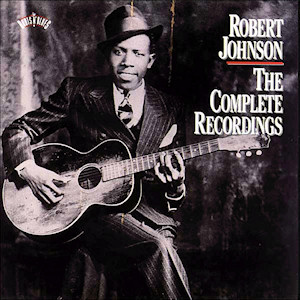
The Complete Recordings is a compilation album by American Delta blues musician Robert Johnson. The 41 songs were recorded in two sessions in Dallas and San Antonio, Texas for the American Record Company (ARC) during 1936 and 1937. Most were first released on 78 rpm records in 1937. The Complete Recordings, released August 28, 1990, by Columbia Records, contains every recording Johnson is known to have made, with the exception of an alternate take of "Traveling Riverside Blues".
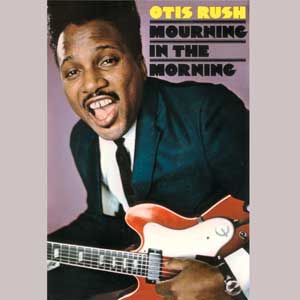
Mourning In the Morning is an album by the American blues singer and guitarist Otis Rush, released in 1969. Characterized as his first album, Rush had been cutting singles since 1955. The album fuses Rush's deep blues sound with soul and rock. The album was panned by many critics, but has since developed a cult following.
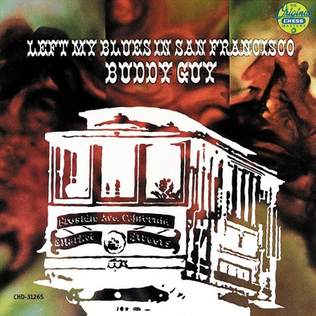
Left My Blues in San Francisco is the debut studio album by American blues artist Buddy Guy, released in 1967. Future Rotary Connection producer and keyboardist Charles Stepney provided orchestration and drums on some tracks. The album is a mix of older blues tunes and four Buddy Guy originals.

Hey, Where's Your Brother? is an album by the American musician Johnny Winter. It was released in 1992 by Point Blank Records. Edgar Winter played on three of the album's songs. The brothers supported the album by jointly playing several shows. The first single was "Johnny Guitar".

Cry of the Prophets is an album by the American blues musician Chris Thomas, released in 1990.

One More for the Road is a studio album by the American blues musician Charles Brown. It was released in 1986 through Blue Side Records, and rereleased in 1989 through Alligator Records. It was regarded as a comeback album for Brown, who had been out of the spotlight for decades.
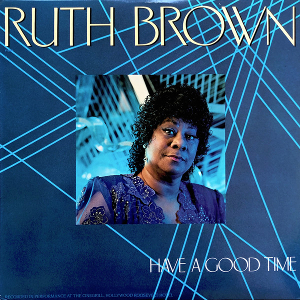
Have a Good Time is a live album by the American R&B singer Ruth Brown, released in 1988. Her first album for Fantasy Records, it was a factor in Brown's late 1980s career resurgence.
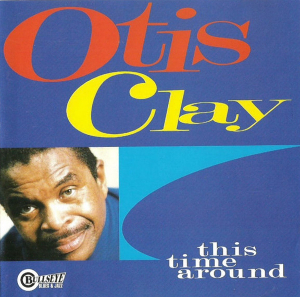
This Time Around is an album by the American musician Otis Clay, released in 1998. It was his first studio album in five years, and came about due to a desire to record in Memphis again.

Boozoo Chavis is an album by the American musician Boozoo Chavis, released in 1991. It was part of the Elektra/Nonesuch American Explorer series. The album was the culmination of a comeback for Chavis that had begun in 1984. Chavis supported the album by playing the Newport Folk Festival.

The Real Deal is an album by the American musician Smokey Wilson, released in 1995. Wilson supported the album with a North American tour. It was nominated for a W. C. Handy Award for best traditional blues album.

Working Girl Blues is an album by the American musician Phillip Walker, released in 1995. It was his first album for an American label in seven years. Walker supported the album with a North American tour. Working Girl Blues was a hit on blues radio formats.
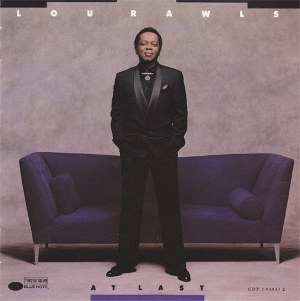
At Last is an album by the American musician Lou Rawls, released in 1989. Promoted as a jazz album, it was timed to the 50th anniversary celebration of Blue Note Records. The album peaked at No. 1 on Billboard's Contemporary Jazz Albums chart. At Last was nominated for a Grammy Award for "Best Jazz Vocal Performance, Male". Rawls supported the album by playing several European jazz festivals.

Serious is an album by the American musical group the O'Jays, released in 1989. It was the group's first album for EMI Records. "Out of My Mind" and "Have You Had Your Love Today?" were released as singles. The O'Jays supported the album by playing the Hampton Jazz Festival and touring with LeVert.

Chain is an album by the American band the Family Stand, released in the United States in 1990. The first single, "Ghetto Heaven", was a hit in dance clubs; "Chain" was also released as a single. The band supported the album with a North American tour. Chain peaked at No. 52 on the UK Albums Chart.

Fine and Mellow is an album by the American musician Ruth Brown, released in 1991. After recuperating from leg surgery, Brown supported the album with several concert appearances.




















